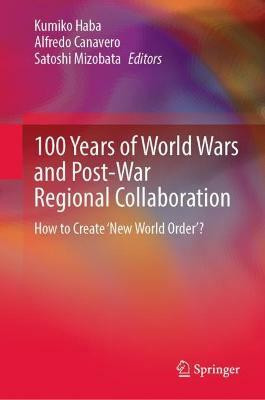100 Years of World Wars and Post-War Regional Collaboration(English, Hardcover, unknown)
Quick Overview
Product Price Comparison
This book is about the 100 years of World Wars and Regional Collaboration in the twentieth and twenty-first centuries, investigating and considering how to foster Good Governance and New World Order. The world is currently at the historical turning point. The twentieth century witnessed two World Wars (WWI and WWII), followed by the Cold War that dominated geopolitics. Amidst the post-war devastation, the European Community, soon succeeded by the European Union, came into being. Peaceful governance was nurtured by building economic collaboration and institutions and by establishing liberalism, democracy and the rule of law. In Asia, the Association of Southeast Asian Nations (ASEAN) also pursued regional governance after WWII, but in East Asia, the American Divide and Rule policy is continuing until now by the influence of China, North Korea and Russia. In the contemporary world in the twenty-first century, a new nationalism, Populism and Authoritarianism are spreading. At the same time, a wave of rapid economic growth is occurring in developing countries, especially in China and India. Destabilization is spreading in East Asia, Southeast Asia, and South Asia concurrently with the search for "Democratization". Through the two World Wars and the Cold War which originated in 100 years of the twentieth century, what types of regional institutions and governance have been developed to avoid endless wars and conflicts? In this book, it is examined, what kind of order is necessary to stabilize the regions from conflicts and wars in both Europe and Asia. The themes of the Tokyo Conferences and the Kyoto Conference by SCJ (Science Council of Japan) in December 2020, were investigated and clarified, how the countries that were caught up in global wars have considered regional coexistence in each period, and how to establish peace, stability, and prosperity by means of new institutionalizations, norms and the rule of law. The aim of the authors is to examine and discuss How to create New World Order, Regional Collaborations and Good Governance in the historical power transition period. This book can inspire many scholars and young researchers to join in discussing how to create New World Order in the twenty-first century, from the midst of the unstable situations of the global geopolitics.


